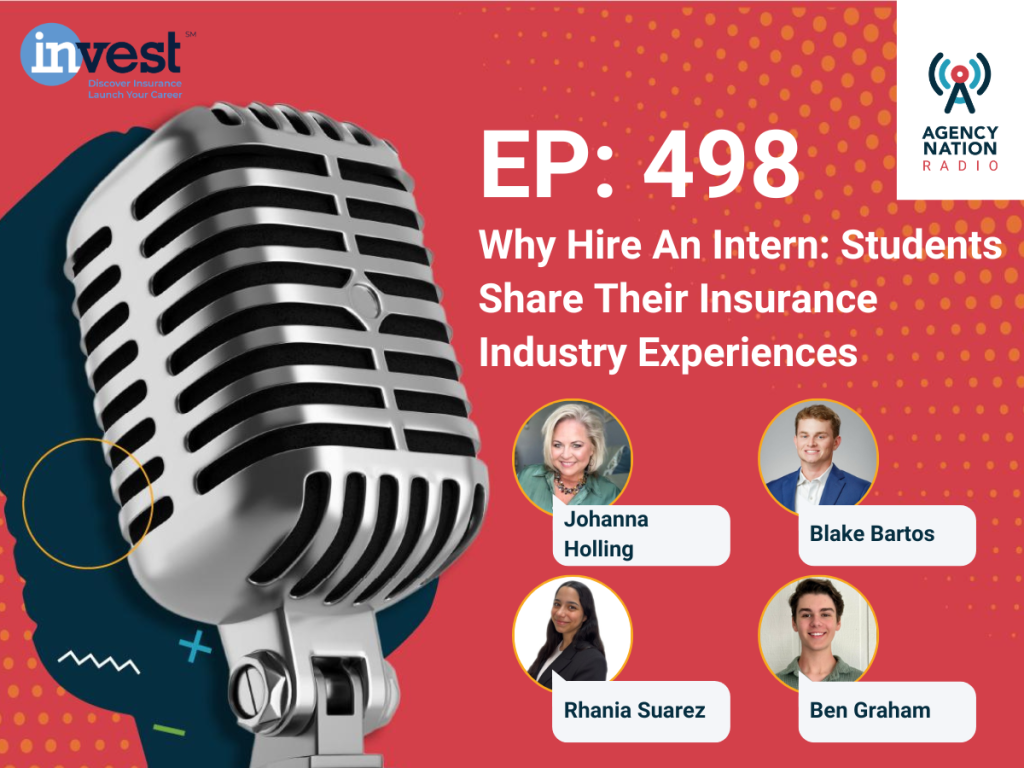Teething Problems: Overcoming the Challenges of Hiring Interns

By: Will Jones
Opening your doors to interns can be a gamechanger for you and your agency. But finding the right fit and utilizing them to their maximum potential can be a difficult task.
Many independent agencies do not take advantage of the wealth of talent available on their doorstep, because they are daunted by the prospect of inviting someone young and inexperienced to join their team.
During a recent NetVU webinar, How Agencies Can Use Interns, three independent agents shared what they’ve learned from utilizing interns—and how your agency can benefit from the practice.
Why Bother?
At Stolly Insurance Group, an independent agency headquartered in Lima, Ohio, “we really questioned why we would even need an intern,” said Mark Stolly, principal.
“We got together with the local Big ‘I’ association, and from that moment on, we opened our doors. Once we understood we were opening our doors to these younger millennials, we quickly found out that the intern’s brain brings new ideas and things you don’t necessarily think of.”
Todd McCredie, president of McCredie Insurance Agency in Flint, Michigan, also believes “interns can actually help the morale of the company.” During the webinar, he said his agency has had “instances where we see our staff come out of their shell because they want to help this younger person who really doesn’t understand the business. Everybody contributes.”
Hiring an intern for the first time is a learning curve for any agency. But once you make the leap, the process of bringing interns into your office on a regular basis becomes much easier.
Independent agency Lipscomb Insurance belongs to the Independent Insurance Agents of Dallas, which is heavily involved with the InVEST® program. “That’s how we got started, and it’s been true trial and error,” said Shyla Lankford, vice president of operations at Lipscomb Insurance.
“I feel bad for our very first intern, but we’ve made improvements,” Lankford added. “Don’t give up on the first one—if you think you’ve failed, it’ll get better. Keep going. We get better at picking interns, as well as finding ways to actually utilize them.”
McCredie agreed: “Initially, it’s easier to say no, but you just have to draw the line. [Over time], they seem to get better because the agency learns a little bit and learns how to work with them.”
Where to Find Them
Lipscomb Insurance relies on the InVEST program and its local Big “I” association for help finding interns, but the agency also has relationships with local college professors. Two local risk management programs “give us a step up, because those interns are already interested in the industry,” Lankford said.
Another effective recruitment strategy: referrals. “Everything in this business is referral-based,” Lankford said. “We spend a lot of time getting referrals for our own business, so we use those for interns, too. It solidifies our relationship with the person making the referral.”
Stolly suggested looking to your own agency staff to find interns. “We’ve got enough younger producers in our office that are networking in that age group,” he explained. “We’ll find someone who is not necessarily on our radar that comes in through people within our agency, so we try to promote that.”
Making It Work
Finding a suitable intern is only the first step. Using them to their fullest is a different matter entirely. Doing this normally involves playing to the strengths of today’s graduate, and don’t overlook a young intern’s ability to pick up new skills quickly.
“No. 1, they are computer-savvy,” Lankford said. “I give them a project that would normally take someone days to do, and all of a sudden they’re in my office four hours later, saying ‘I’m done. What can I do next?’”
Lankford also relies on interns to maintain her agency’s social media presence. “I come from a very old family agency where our principal is 92 years old, so social media was an unknown until I started putting it together,” she said. “It fell to me to work on in my spare time, so it doesn’t get the time is should. We’ve used interns to build some momentum on various social media pages.”
Stolly agreed that “kids today are smart, competent, technology-savvy and willing to learn. They pick up on things quickly.” He recalled one intern “who was very outgoing, liked to meet people and loved to talk, so we put that person on the phone making cold calls. We watched them for a while, but this person did a better job than a lot of our producers.”
Will Jones is IA assistant editor.










